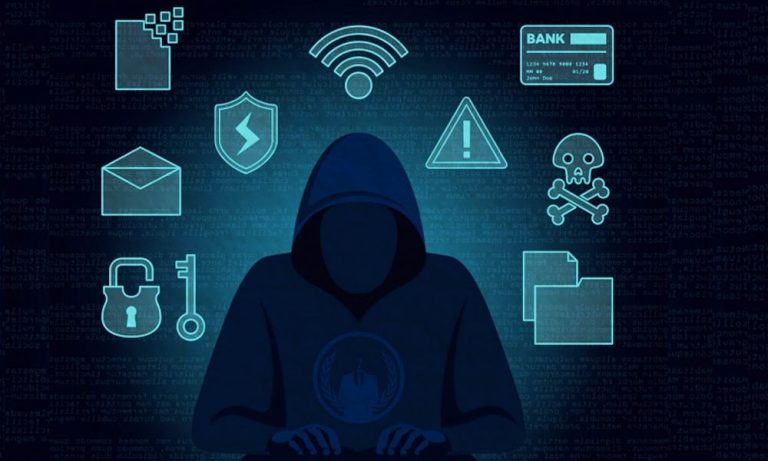
Cybercrime is a global issue that transcends borders, making it one of the most challenging forms of crime to combat. As the digital landscape evolves, so too do the methods used by cybercriminals, often targeting victims in multiple countries. Given this complexity, international cooperation has become essential in the fight against cybercrime. In this article, we will explore the importance of collaboration between nations, the key areas where cooperation is critical, and the challenges that need to be overcome to create a safer cyberspace.
Why International Cooperation is Necessary
In the modern world, cybercrime affects both individuals and businesses, leading to financial losses, data breaches, and compromised national security. Hackers and cybercriminals often operate across multiple jurisdictions, exploiting differences in legal frameworks to avoid detection and prosecution. For this reason, no single country can effectively fight cybercrime on its own. International cooperation enables countries to share resources, intelligence, and expertise, creating a unified approach to tackling these complex threats.
Key Reasons for International Cooperation:
- Cross-border nature of cybercrime: Many cybercrimes, such as ransomware attacks, phishing, and hacking, originate from different countries, making it difficult to track and prosecute offenders without cross-border collaboration.
- Resource sharing: Cybercrime investigations require advanced technology and skills, which smaller or less-developed nations may lack. International cooperation ensures that all countries have access to the necessary tools and knowledge.
- Standardization: Different countries have different laws and regulations regarding cybercrime. International cooperation can help create a standardized framework that makes it easier to investigate and prosecute cybercriminals globally.
Why It’s Important:
Cybercrime is not confined to national borders. International cooperation allows for a more comprehensive and effective approach to identifying, preventing, and prosecuting cybercriminals.

Key Areas of International Cooperation in Fighting Cybercrime
1. Information Sharing and Intelligence
One of the most crucial aspects of international cooperation is the sharing of information and intelligence related to cybercrime. Countries must work together to exchange data on ongoing investigations, emerging threats, and known cybercriminals. Law enforcement agencies, such as Interpol and Europol, play an essential role in facilitating these exchanges. In addition, cybersecurity firms and private sector companies often collaborate with government agencies to provide technical expertise and real-time threat intelligence.
Why It’s Important:
The speed at which cybercrimes occur requires quick access to information. By sharing intelligence, countries can respond faster to potential threats and prevent cyberattacks before they cause significant damage.
2. Legal Harmonization
A significant challenge in fighting cybercrime is the lack of consistent laws across countries. For example, actions that are illegal in one country might not be considered a crime in another, making it difficult to prosecute offenders. Harmonizing cybercrime laws through international treaties and agreements can help bridge these gaps.
The Budapest Convention on Cybercrime, adopted by the Council of Europe, is a prime example of an international treaty designed to standardize laws across borders. It provides a framework for international cooperation in investigating cybercrimes, securing electronic evidence, and facilitating extradition.
Why It’s Important:
By aligning legal frameworks, international cooperation can ensure that cybercriminals are held accountable, regardless of where they operate.
3. Capacity Building and Training
Not all countries have the same level of resources or expertise when it comes to fighting cybercrime. International cooperation can help bridge this gap by offering capacity building and training programs. Countries with more advanced cybersecurity infrastructure can assist less-developed nations by providing training for law enforcement officers, sharing technical resources, and helping build the necessary legal frameworks.
Why It’s Important:
Capacity building ensures that all countries, regardless of their resources, are equipped to deal with the growing threat of cybercrime.
4. Joint Operations and Task Forces
In some cases, international cooperation goes beyond information sharing and legal harmonization. Countries may work together to conduct joint cybercrime operations or establish multinational task forces aimed at tracking down and prosecuting cybercriminals. These joint efforts allow for better coordination and a more comprehensive approach to tackling large-scale cybercrime networks.
For instance, the European Cybercrime Centre (EC3) collaborates with law enforcement agencies from multiple countries to dismantle organized cybercrime networks. Their operations have led to the arrest of cybercriminals involved in ransomware, online fraud, and child exploitation.
Why It’s Important:
Joint operations bring together the resources and expertise of multiple countries, allowing for a more powerful response to sophisticated cybercriminal organizations.
Challenges to International Cooperation
While international cooperation in fighting cybercrime is essential, it is not without challenges. Some of the key barriers include:
- Jurisdictional issues: Differing national laws and sovereignty concerns can complicate cross-border investigations and extraditions.
- Data privacy: Countries have varying regulations on data protection, which can hinder information sharing between governments and private entities.
- Political tensions: International relations and political disagreements can sometimes obstruct cooperation in cybercrime investigations.
- Lack of trust: In some cases, countries may be reluctant to share sensitive information due to concerns over espionage or the misuse of intelligence.
Why It’s Important:
Overcoming these challenges is critical to ensuring that international cooperation remains effective in the long-term fight against cybercrime.
Conclusion
As cybercrime continues to evolve and grow in scope, international cooperation is more important than ever. By working together, countries can share intelligence, harmonize legal frameworks, and build the capacity to fight cyber threats on a global scale. While challenges remain, the benefits of a coordinated approach far outweigh the difficulties. By fostering collaboration between nations, we can create a safer and more secure cyberspace for everyone.







